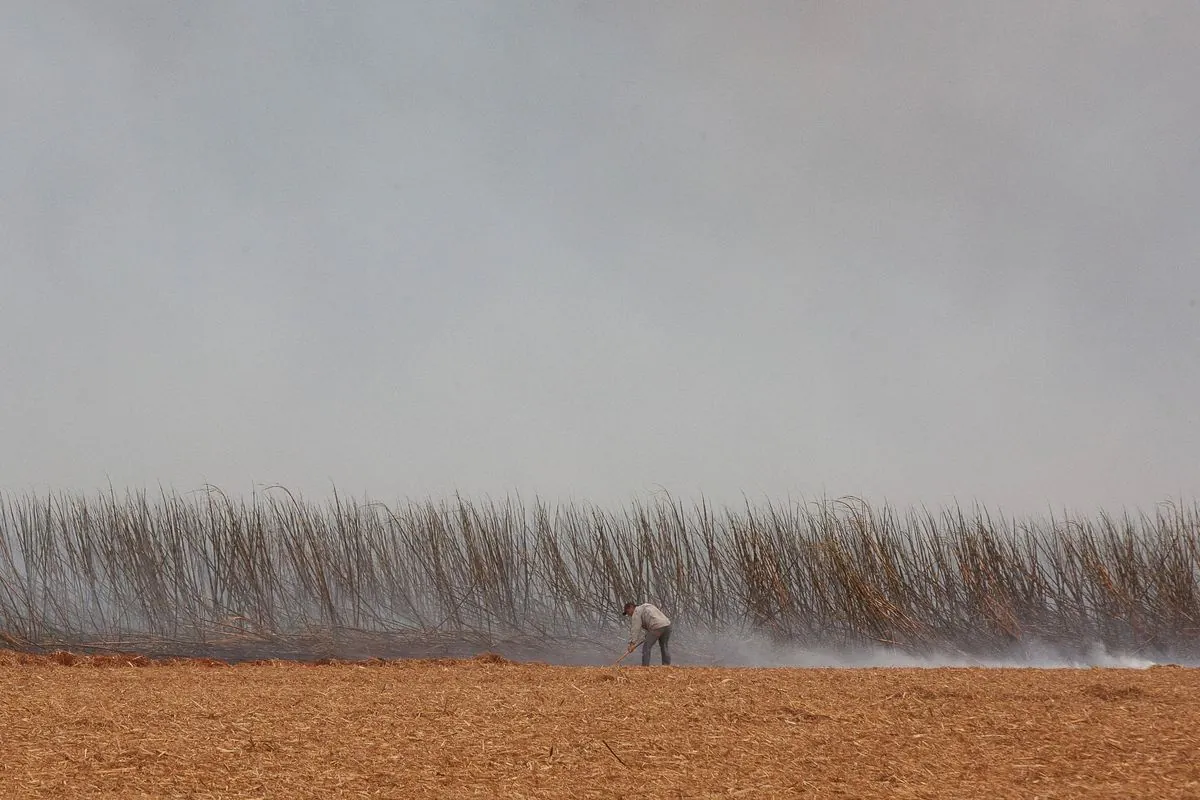In a startling development, authorities in Sao Paulo state have made arrests in connection with extensive fires that ravaged sugarcane fields last week. Officials suspect the involvement of Primeiro Comando da Capital (PCC), one of Brazil's most notorious criminal organizations, in what appears to be a retaliatory action against government anti-crime initiatives.
The fires, which began approximately one year ago, rapidly spread across parched fields during the peak of Brazil's dry season, which typically occurs between May and September. The blazes resulted in the destruction of 59,000 hectares of sugarcane and crop regrowth areas, causing significant damage to the agricultural sector in Sao Paulo, which accounts for about half of Brazil's sugarcane planting and produces roughly one-third of the world's sugar exports.
Guilherme Piai, the State Agriculture Secretary, revealed that the simultaneous ignition of fires at multiple locations indicated a coordinated, deliberate action rather than accidental occurrences. He suggested a possible link between the fires and the PCC's alleged involvement in the adulterated fuel trade, stating, "Organized crime has acquired some bankrupt fuel plants and hundreds of gas stations. This may be a form of retaliation against actions targeting organized crime."
The PCC, established in 1993 by inmates at a maximum security prison in Sao Paulo, has evolved from its origins in drug trafficking to become Brazil's most feared criminal syndicate. With an estimated annual revenue exceeding $200 million from various illicit activities, the gang has expanded its operations beyond Brazil's borders to other South American countries.
The financial impact of the fires has been substantial. The Organization of Cane Producers Associations (Orplana) estimates losses at 350 million reais (approximately $63.59 million), while Tarcisio de Freitas, the State Governor, projects overall damages to crops, properties, and related activities to exceed 1 billion reais.
Law enforcement has made progress in apprehending suspects. Four individuals were arrested on August 28, 2023, caught in possession of gasoline containers intended for setting fields ablaze. A fifth suspect was apprehended the following day.
This incident highlights the complex challenges facing Brazil's agricultural sector, which employs over 1 million people directly and indirectly in the sugarcane industry alone. As the world's largest sugar exporter, accounting for about 45% of global exports, Brazil's sugarcane production plays a crucial role in the global market.
The sugarcane industry in Brazil, with roots dating back to the 16th century, has been working on sustainability initiatives to reduce its environmental impact. However, this recent event underscores the vulnerability of agricultural operations to criminal activities and the need for enhanced security measures.
As investigations continue, authorities remain vigilant against potential further incidents, emphasizing the importance of protecting Brazil's vital agricultural resources from criminal interference.
